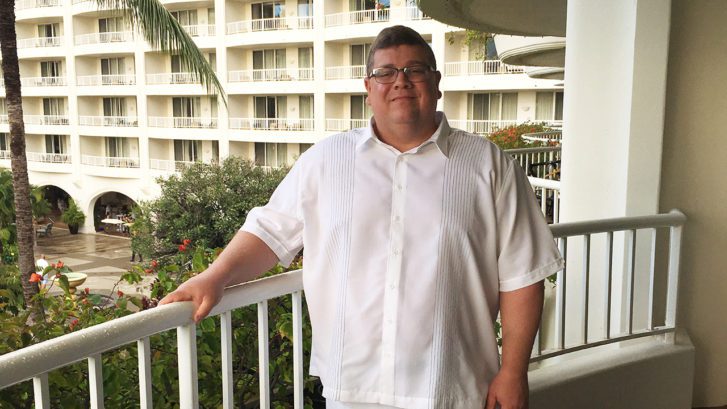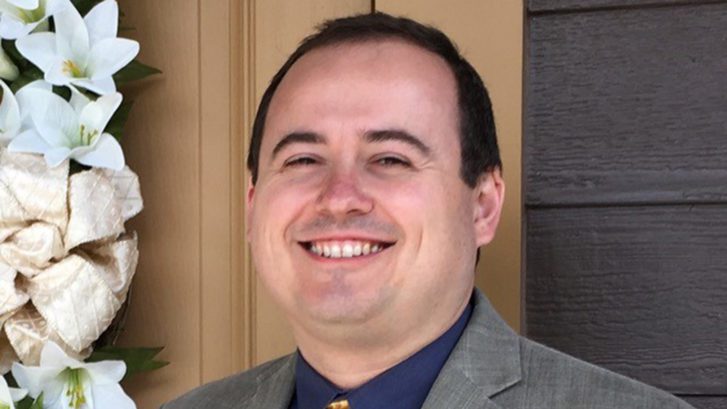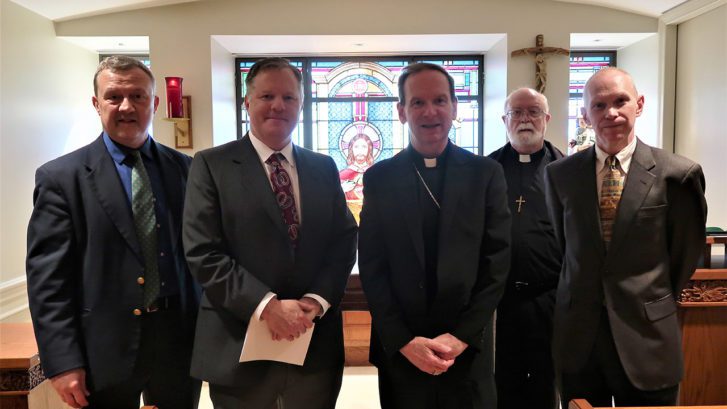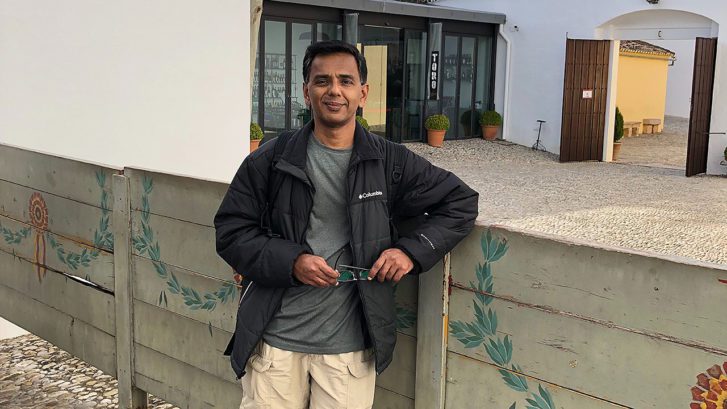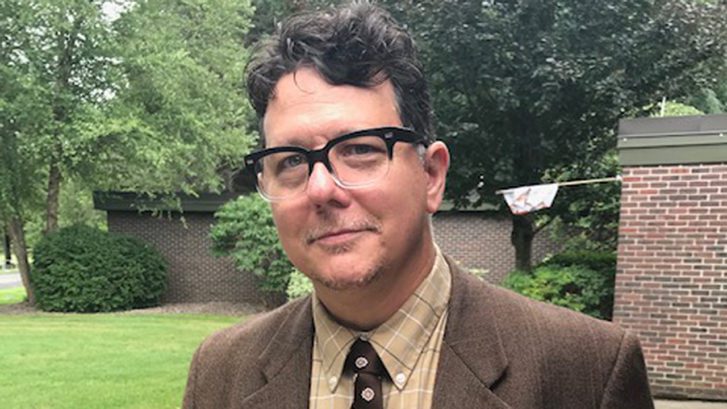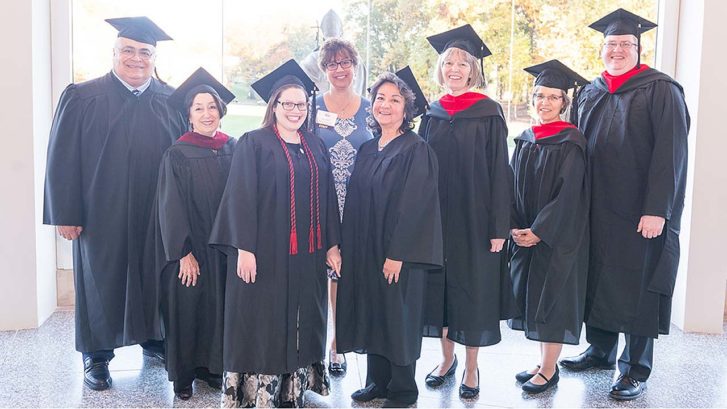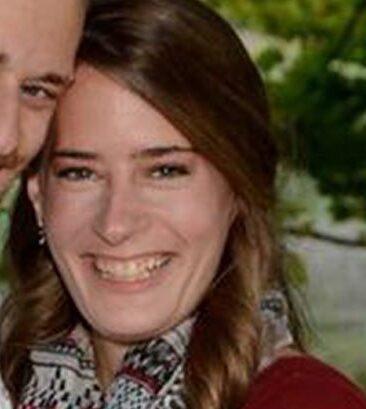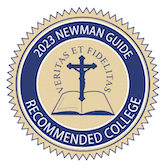IT Professional Graduates Summa Cum Laude
Daniel Colón earned his BA degree summa cum laude this year. He is an information technology professional and also serves as a coordinator of religious education at Holy Spirit Catholic Church in Palmyra, PA. Daniel attended two other institutions and switched his field of study several times before settling on theology at CDU.
“In 1986 I began attending Sacred Heart University in Santurce, Puerto Rico. I was majoring in telecommunication (radio and TV), however after two years I realized it wasn’t what I wanted to do. I changed my major to psychology because I always felt drawn to help to others in some way, so psychology seemed like a good bet,” he says. “Unfortunately, due to life’s circumstances, I had to drop out with a year and a half left to complete the BA.” Some years later, Daniel attended a computer technical school. After obtaining a certificate and various IT certifications, he began his career in the IT field.
“About 6 years ago, I ran across CDU’s BA completion program and thought, ‘what a great way to learn more about my faith and complete my degree,’” he says. “I have always been driven to help, teach, and mentor others. A degree in theology sounded like a great way to be more helpful and effective when talking to others about my faith.” Daniel found the asynchronous online classes very convenient. “They also allow for more meaningful conversations as students have the chance to develop a thought through and then share with the class,” he adds.
Though Daniel was raised Catholic, he left the Church for a time. “In my late teens I got involved with a Pentecostal church, and I had an encounter with Christ,” he says. People from the church were very welcoming, and they helped Daniel to get involved in youth ministry, music ministry, and increase his knowledge of Scripture. Looking back, Daniel says, he was drawn away from the [Catholic] Church by the lure of novelty and the rush of excitement from more charismatic religious practices.
“I guess you can say I didn’t leave the [Catholic] Church all at once but rather slowly trickled away,” he says. “I know now that the reason I walked away is because I did not understand nor appreciate the real presence of Christ in the Eucharist. I thought I had found Jesus, yet he was there in the tabernacle at my parish the whole time. This is why as a religious educator, I try to focus on the Eucharist to help students understand that they will not find the Eucharist anywhere else but in the Catholic Church.”
He advises young people who may be thinking of leaving the Church to get involved in their parish and find ways to participate in youth ministry, altar serving, or volunteering. “This is especially true for Confirmation students,” he says. “I always remind them that confirmation is not graduation and that it is a beginning rather that an end. Teens considering leaving the Church should remember that God loves them, and He will never tire of reaching out in love to draw them back.”
After many years the Holy Spirit moved Daniel to return to the Church, and that is when he discovered CDU. “I responded to this call with an intense feeling that God was preparing me for something,” he says. “I had an insatiable desire to study Church history, theology, and teaching, and the more I studied, the more I wanted. So I took the next natural step, which was to pursue a theology degree.”
Dr. Marcellino D’Ambrosio was Daniel’s favorite professor. “I took 2 classes with him, and he is wonderful. THEO 503 The Catholic Theological Tradition was a fantastic course. His method of teaching and delivery is very conducive to great board discussions, and he is extremely knowledgeable,” he says.
Daniel developed a good rapport with a few of his fellow classmates, sharing notes and having great discussions. “In general, I found students at CDU a very cordial and smart. It was great reading their stories and comments,” he says.
As coordinator of religious education, Daniel helps prepare children to receive the sacraments, assists with the RCIA process, teaches classes, helps to coordinate adult Bible studies, and serves as a premarital marriage mentor along with his wife, to whom he has been married for 29 years. They have two daughters and two sons.
Though being a coordinator of religious education is very rewarding, there are many challenges, one of which is avoiding discouragement, he explains. “It breaks my heart when a 14-year-old receives Confirmation and then we never see them again,” Daniel says. “This has been a source of frustration and pain. However, I remind myself that God is in control, and I must trust the Holy Spirit. It is not about me but about what God is doing in the life of that young person. If we have done a good job laying a solid foundation, I trust that they will come back.”
Another challenge is getting parents and families involved in the religious formation of their children. “Far too often, I notice parents dropping off their kids in the parking lot without setting a foot in the church or going to Mass. I think parents are missing the boat when they do that,” he says.
“God has a plan for everyone,” Daniel says. “If you had told me 5 years ago that I would have a degree in theology and be coordinator of religious education for a church I would have laughed. You never know where God is going to take you, and He usually takes you in directions that are neither comfortable nor easy but are filled with blessings and rewards. We must listen to the voice of God and prayerfully allow the Holy Spirit to complete his work in us; only then can we be truly fulfilled and happy.”
Recently, Daniel was asked to speak to a group about Lent. “Five years ago no one really cared what I had to say about anything, and now I get invited to speak. God is good!” Daniel says. “In only a couple of years, I have gone from a life of little to no involvement in church and community to a life of service to others and sharer of the good news of Christ. I am truly blessed. To God be all the glory!”

